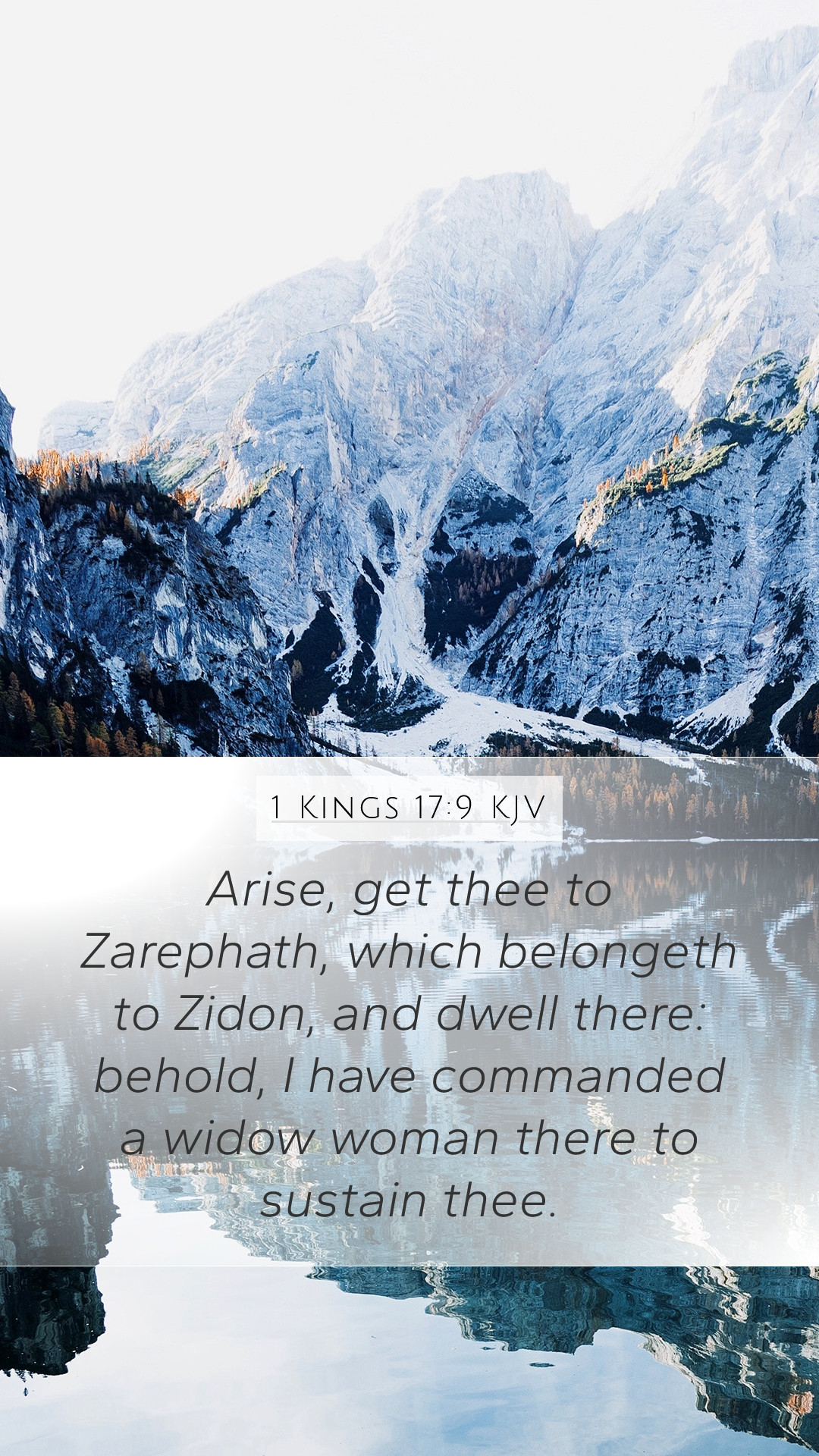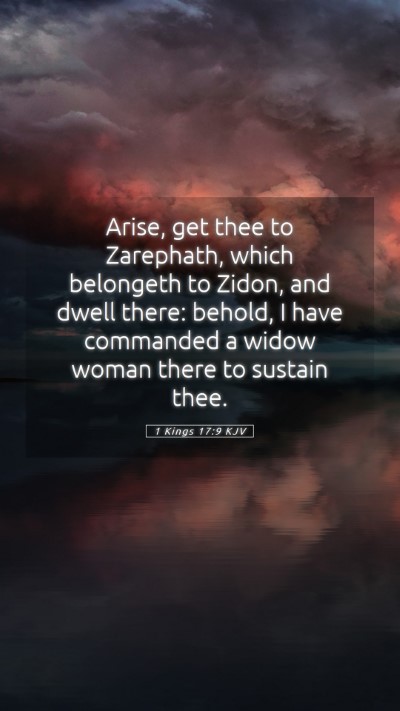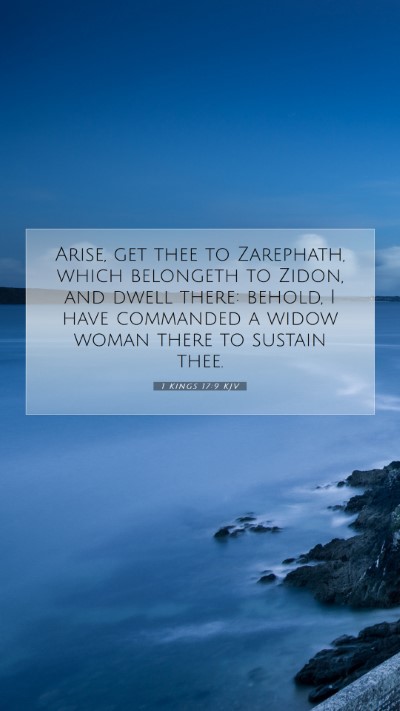Understanding 1 Kings 17:9
“Arise, go to Zarephath, which belongs to Sidon, and dwell there; I have commanded a widow there to provide for you.”
This verse marks a pivotal moment in the life of the prophet Elijah, as he embarks on a journey of faith and reliance on God's provision. The command to go to Zarephath underscores themes of obedience, divine providence, and God's ability to provide in the most unlikely circumstances.
Summary of Biblical Context
In the preceding chapters of 1 Kings, Elijah has been a servant of God amidst drought and famine, illustrating the consequences of idolatry in Israel. This verse is set against the backdrop of a severe famine affecting not only Israel but also surrounding nations. Elijah's journey to Zarephath signifies God's control over nature and nations, as He sends His prophet to a Gentile territory, emphasizing His mercy reaching beyond Israel.
Commentary Insights
-
Matthew Henry Commentary:
Henry elucidates the significance of God's command to Elijah. A widow, often viewed as the least privileged in society, is chosen to provide for the prophet. This points to God’s ability to use humble and unlikely individuals to fulfill His purposes and serve His messengers, thus showcasing divine grace.
-
Albert Barnes Notes:
Barnes highlights that Zarephath, a city of Sidon, indicates a place beyond the borders of Israel, affirming the universal reach of God's compassion. The command to find a widow stresses that God’s means of provision are not limited to wealth or resources but can stem from the heart of a person willing to serve.
-
Adam Clarke’s Commentary:
Clarke provides historical context, noting Zarephath's location as a Phoenician area, which was known for its worship of Baal. This choice of location may represent a challenge to prevailing idolatry, and suggests God's sovereignty over all people, regardless of their nations or practices.
Theological Themes
- Divine Providence: God's command to Elijah reflects His continued provision amidst Israel’s disobedience. Elijah's reliance on a widow illustrates trust in God's plan, as He knows where and how to provide for His servant even in desperate times.
- Obedience to God: Elijah's immediate response to God's instruction reinforces the importance of obedience in a believer's life. His journey symbolizes a faith journey, moving away from comfort for the purpose of fulfilling divine mission.
- God's Mercy to Outsiders: The widow of Zarephath exemplifies God's mercy extending beyond Israel, setting a precedent for the New Testament, where Jesus emphasizes faith among Gentiles.
Practical Application
Understanding 1 Kings 17:9 is essential for practical Christian living today. Believers are encouraged to trust in God's provision, even when circumstances appear dire. Engaging with this text can lead to a deeper understanding of how God works in our lives and the lives of those we may least expect.
In personal Bible study, this verse can inspire discussions in bible study groups or online bible study settings, allowing participants to explore themes of trust, obedience, and God's faithfulness.
Cross References
- Matthew 15:21-28 — Centurion's Faith (Gentile who sought Jesus' help)
- Luke 4:25-26 — Jesus refers to Elijah and the widow as a lesson of faith outside of Israel.
- James 5:17 — Elijah's prayers and provision during drought.
- Psalm 146:7 — God being the protector of the weak, including widows.
Key Takeaways
1 Kings 17:9 encapsulates profound lessons on:
- Bible verse meanings: Understanding God’s directives in desperate times.
- Bible verse interpretations: Unpacking the nature of God's provision and mercy.
- Scripture analysis: Examining historical and sociocultural contexts of biblical narratives.
- Understanding Scripture: Exploring the implications of obedience to God's voice.


